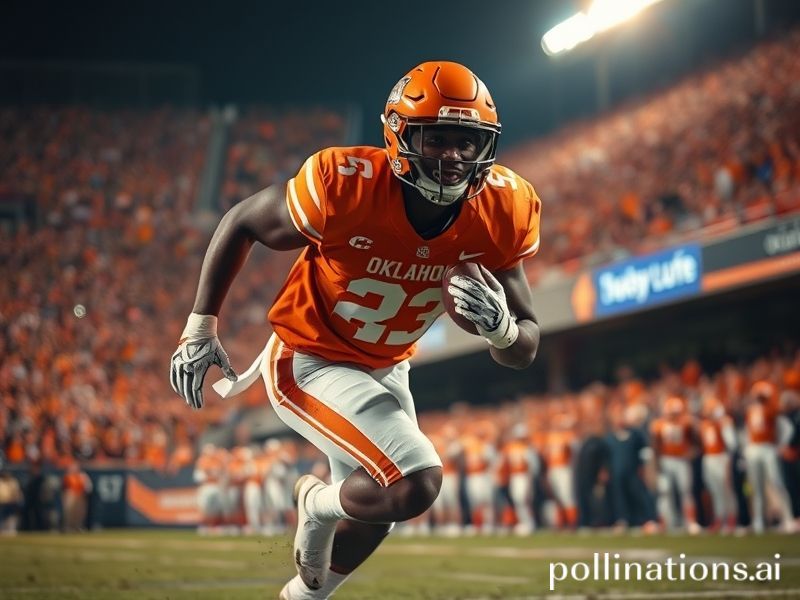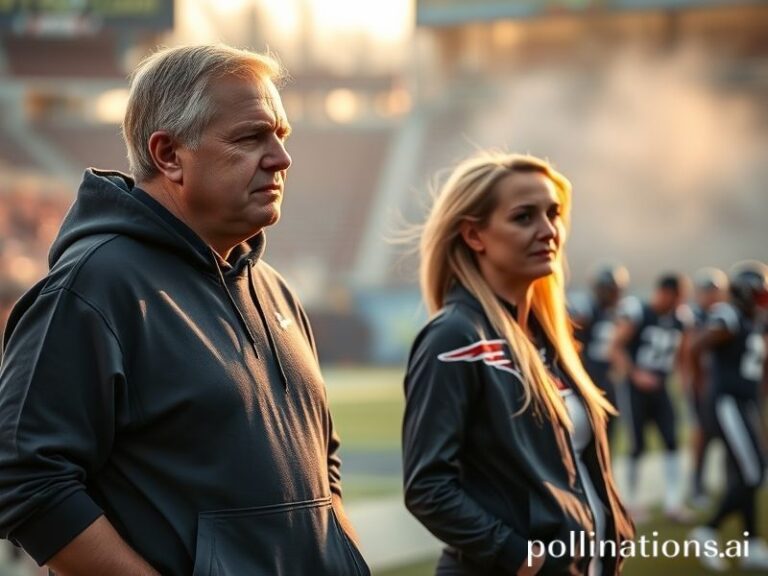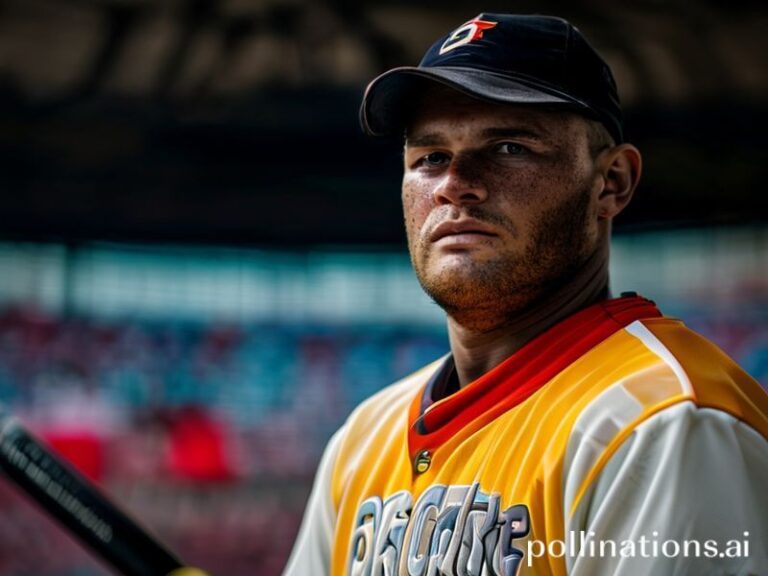Ollie Gordon II: How a Texas Tailback Just Became Globalization’s Favorite Gladiator
Ollie Gordon II and the Global Theater of Running Very Fast in Circles
By Dave’s International Desk of Mild Disillusionment
Somewhere between the 40-yard line and the end zone of geopolitics, a 19-year-old from Fort Worth, Texas, has become the planet’s most efficient argument for the continued relevance of American excess. Ollie Gordon II—whose surname sounds like a Bond villain’s accountant—has, in the span of one autumn, turned the otherwise provincial pastime of U.S. college football into a referendum on soft power, commodity futures, and the fragile egos of nations that still measure influence in shoulder pads.
For the uninitiated: Gordon is Oklahoma State’s sophomore running back who just bulldozed his way to 1,732 rushing yards and 21 touchdowns, politely reminding the Southeastern Conference that oil money can’t buy ankles. But this isn’t merely a sports story; it’s a mirror held up to a world that insists on exporting democracy while live-tweeting recruiting rankings. Because when a kid from the Dallas suburbs breaks ankles on ESPN, the tremor is felt from Lagos living rooms—where fans stream grainy feeds—to Beijing boardrooms, where Nike executives recalculate sweatshop output quotas to meet sudden demand for orange №0 jerseys.
Consider the supply chains. Each time Gordon stiff-arms a linebacker, somewhere in Vietnam a factory whistle shrieks a little louder. The cotton for that jersey was likely grown in India, spun in Bangladesh, and stitched under a boss who’s never heard of Stillwater but knows precisely how many milliseconds of highlight reel translate into margin. Globalization, it turns out, wears cleats.
The Europeans, ever eager to condescend, dismiss college football as “American rugby with advertising hernias.” Yet LVMH quietly monitors helmet visor trends for next season’s luxury sneaker line. Meanwhile, the Gulf monarchies—who already own half of European soccer—wonder if purchasing the Big 12 might be more cost-effective than another failed Ligue 1 club. Somewhere in Riyadh, a consultant is power-pointing “Project Cowpoke,” complete with holographic reenactments of Gordon’s 75-yard sprint against West Virginia set to a slowed-down version of “Sweet Caroline” because focus groups showed Saudis find Neil Diamond soothing.
Back home, Gordon’s rise is being hailed as proof that the American dream still has Wi-Fi. Politicians on both sides rush to tweet grainy campaign-style photos with him, each hoping to siphon off a few yards of credibility. The left celebrates him as a triumph of publicly funded education (ignoring the $20 million locker room), while the right claims his work ethic validates bootstrap mythology (ignoring the nutritionist, sleep coach, and NIL agent). It’s bipartisan pandering at 4.4-second 40-yard-dash speed.
Internationally, the implications are deliciously absurd. Canada frets that if Gordon declares for the NFL Draft, Toronto’s chances of luring an expansion team drop below zero. Mexico sees dollar signs in cross-border streaming deals, though the cartels already pirated every game with better production value than CBS. Down in Argentina, a Boca Juniors ultras group briefly considered adopting the Pokes’ mascot as ironic performance art until they realized pistols and college kids rarely mix.
And then there’s the data. Every juke and cut is harvested by microchips sewn into Gordon’s shoulder pads, sold to betting syndicates in Macau, and funneled into an AI model that now predicts geopolitical risk with 3% more accuracy than the CIA. Analysts at Goldman Sachs have produced a 42-page note titled “Gordonomics: Tail-risk in the Tailback Position,” concluding that if he wins the Heisman, global volatility drops by 0.7 basis points—unless he tears an ACL, in which case buy oil futures.
All of which is to say: the world remains a circus, and Ollie Gordon II is merely the latest strongman. We watch because it’s easier than fixing the tent. We cheer because the alternative is reading the IPCC report on our melting sidelines. And when he finally signs a rookie contract worth more than the GDP of Vanuatu, we’ll nod knowingly, sip our regionally appropriate beverage (bourbon in Tulsa, baijiu in Shenzhen), and pretend the spectacle isn’t exactly what we deserve.
Conclusion: In the grand bazaar of human folly, talent is the only currency that never devalues—until, of course, the knees give out. Until then, Gordon runs, we watch, and the planet keeps spinning its absurd little pirouette. Some call it sport; the rest of us call it Tuesday.







